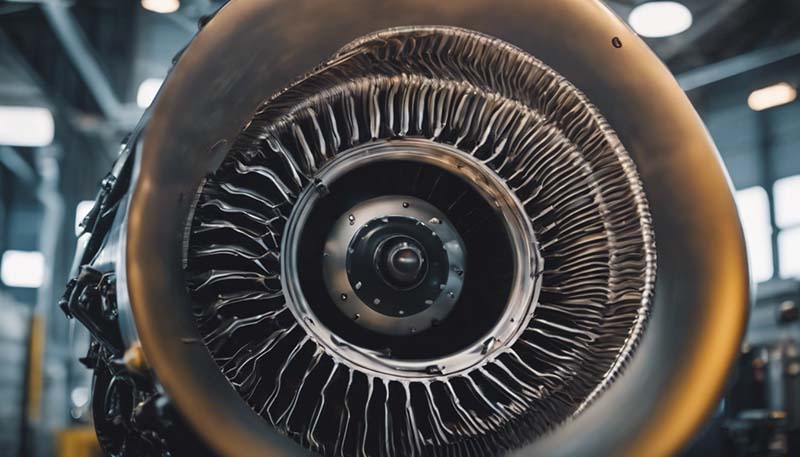The aviation industry has come a long way since the Wright brothers' first powered flight in 1903. Over the years, technological advancements have led to the development of more efficient, powerful, and environmentally friendly aircraft. One of the most significant factors contributing to these improvements is the evolution of jet engines. In this article, we will explore the history of jet engine development, the innovations in modern engines, and how these advancements are changing the face of aviation.
History of Jet Engine Development
The first jet engine was invented by Sir Frank Whittle, a British engineer, in the 1930s. Whittle's design, known as the Whittle Engine, was the first successful jet engine and laid the foundation for future developments. The first jet-powered flight took place in 1941, and by the end of World War II, jet engines had become a reality for military aircraft.
The 1950s saw the introduction of commercial jet airliners, with the de Havilland Comet and the Boeing 707 being the first to enter service. These early jet engines were noisy, inefficient, and had limited range. However, they marked the beginning of a new era in aviation, with faster and more comfortable flights becoming a reality for the masses.
Advertisement
Innovations in Modern Jet Engines
Since the early days of jet engine development, engineers have made significant strides in improving their efficiency, power, and environmental impact. Some of the most notable innovations in modern jet engines include:
1. Advanced Materials
The use of advanced materials, such as lightweight composites and high-temperature alloys, has allowed engineers to create more efficient and durable engines. These materials reduce the weight of the engine, leading to lower fuel consumption and reduced emissions. Additionally, high-temperature alloys enable engines to operate at higher temperatures, increasing their overall efficiency.
2. Improved Combustion Technologies
Modern jet engines use advanced combustion technologies to optimize fuel consumption and reduce emissions. Techniques such as lean pre-mixing and precise fuel injection allow for more efficient combustion, resulting in lower fuel consumption and reduced emissions of harmful pollutants like nitrogen oxides (NOx).
3. Enhanced Turbine Designs
The design of the turbine within a jet engine has been significantly improved over the years. Enhanced turbine designs, such as advanced high-pressure turbines and larger fan blades, have led to increased thrust and efficiency. These improvements have allowed modern engines to generate more power while consuming less fuel.
4. Geared Turbofan (GTF) Engines
The introduction of geared turbofan (GTF) engines has been a game-changer in the aviation industry. GTF engines use a gearbox to optimize the fan and turbine speeds, resulting in increased efficiency, reduced noise, and lower emissions. This technology has been successfully implemented in several modern aircraft, such as the Airbus A320neo and the Bombardier C Series.
How Modern Engines Are Changing the Face of Aviation
The advancements in modern jet engines have had a profound impact on the aviation industry. Some of the most notable changes include:
1. Increased Fuel Efficiency
Modern engines are significantly more fuel-efficient than their predecessors, leading to reduced operating costs for airlines. This increased efficiency also translates to lower emissions, making air travel more environmentally friendly.
2. Reduced Noise Pollution
The noise generated by jet engines has long been a concern for both passengers and communities near airports. Advances in engine technology have led to significant reductions in noise pollution, improving the overall passenger experience and reducing the impact of air travel on local communities.

3. Longer Range and Higher Payload Capacity
Modern engines provide greater thrust and efficiency, allowing aircraft to fly longer distances and carry heavier payloads. This has led to the development of new long-haul routes and increased cargo capacity, making global connectivity more accessible and efficient.
4. Improved Passenger Experience
The increased efficiency and reduced noise levels of modern engines have contributed to an improved passenger experience. Passengers can enjoy quieter, more comfortable flights, and the increased range and payload capacity of modern aircraft allow for more convenient and spacious cabin designs.
5. Environmentally Friendly Aviation
The aviation industry is under increasing pressure to reduce its environmental impact. The advancements in modern jet engines have contributed to a more sustainable future for air travel, with lower emissions and reduced noise pollution. As technology continues to advance, it is likely that the environmental impact of air travel will continue to decrease.
Conclusion
The evolution of jet engines has played a crucial role in shaping the modern aviation industry. The innovations in materials, combustion technologies, and engine designs have led to significant improvements in efficiency, noise reduction, and environmental impact. As the industry continues to push the boundaries of technology, it is clear that the future of aviation will be shaped by the ongoing development of advanced, sustainable, and efficient jet engines.